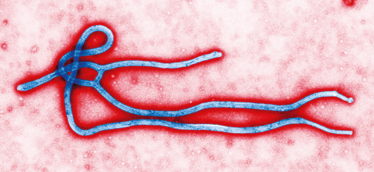World War Ebola
New vaccines, experimental treatments for patients, and cash donations make their mark on the Ebola outbreak.
In one of the latest updates to the unfolding story of Ebola, a vaccine developed by GlaxoSmithKline (GSK) and the US National Institute of Allergy and Infectious Diseases has entered Phase I human clinical trials after being fast-tracked by the FDA. GSK added that it will also be manufacturing around 10,000 extra doses of the vaccine that will be immediately available to high-risk communities, if the trials are successful. GSK hopes that the trial will be complete by the end of this year.

According to the World Health Organization, the current Ebola virus disease epidemic in West Africa, considered the largest since the virus was first identified in 1976, has seen more than 3,600 cases, with the fatality rate averaging around 50 percent (1). Towards the end of August, a separate, unrelated outbreak was also confirmed in the Democratic Republic of Congo.
GSK’s vaccine is against the Zaire species of Ebola (the strain currently affecting West Africa) and is based on an attenuated strain of chimpanzee cold virus, chimp adenovirus type 3; the adenovirus is used as a carrier to deliver genetic material derived from the Ebola virus, and has apparently shown positive results in monkeys.
GSK is not the only Big Pharma company jumping into action. In early September, Johnson & Johnson (J&J) announced that it had teamed up with biotech company Bavarian Nordic to fast-track a combination vaccine against Ebola that uses a prime–boost regimen. The vaccine is based on AdVac technology (developed by Crucell, which J&J acquired in 2011) and Bavarian Nordic’s MVA-Bn technology. Clinical trials are expected to begin in 2015, and J&J is also reviewing known pathways in Ebola pathophysiology to see whether previously tested medicines could be useful as treatments.
Mapp BioPharmaceutical has also been working on a potential Ebola treatment: ZMapp, which has been discussed extensively in the media. ZMapp is a combination of three monoclonal antibodies (mAbs) manufactured in tobacco plants, and was first announced as a drug candidate in January 2014. The mAbs bind certain virus proteins and help to neutralize the virus. Although it’s only been tested in animals so far, it has been given to a number of Ebola-infected patients. Some of these patients have recovered, although it is not known if their survival can be attributed to Zmapp. The company was recently awarded a federal contract to help accelerate testing and increase production yields.
Other companies have also come forward to offer their own experimental Ebola treatments, including Fujifilm and Sarepta Therepeutics. TKM-Ebola, an RNAi therapeutic developed by Tekmira, is another experimental treatment in the works. The drug went into Phase I clinical testing earlier this year, but was put on partial clinical hold by the FDA because of safety concerns. Tekmira says it is evaluating options.
Outside of the pharma industry, governments and other organizations have also come forward with cash donations to help contain the outbreak. One of the most recent – and largest – donations was $50 million from The Bill & Melinda Gates Foundation.
New developments and donations are coming to light almost every day. We’ll keep you updated on the outbreak with exclusive Q&As and more.
- 1. WHO, Ebola virus disease outbreak - West Africa, September 2014, www.who.int

Making great scientific magazines isn’t just about delivering knowledge and high quality content; it’s also about packaging these in the right words to ensure that someone is truly inspired by a topic. My passion is ensuring that our authors’ expertise is presented as a seamless and enjoyable reading experience, whether in print, in digital or on social media. I’ve spent fourteen years writing and editing features for scientific and manufacturing publications, and in making this content engaging and accessible without sacrificing its scientific integrity. There is nothing better than a magazine with great content that feels great to read.



















